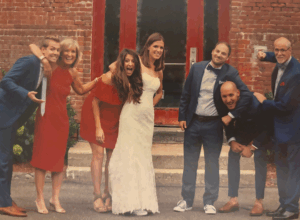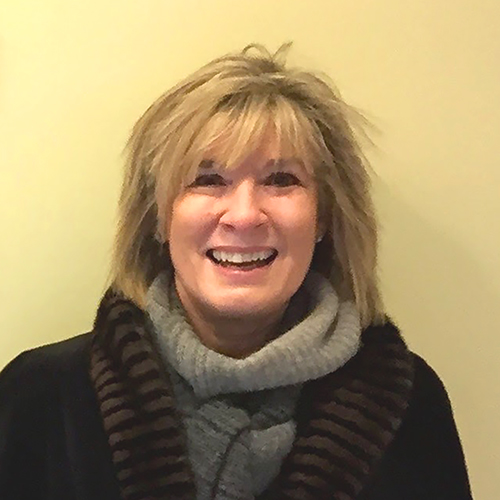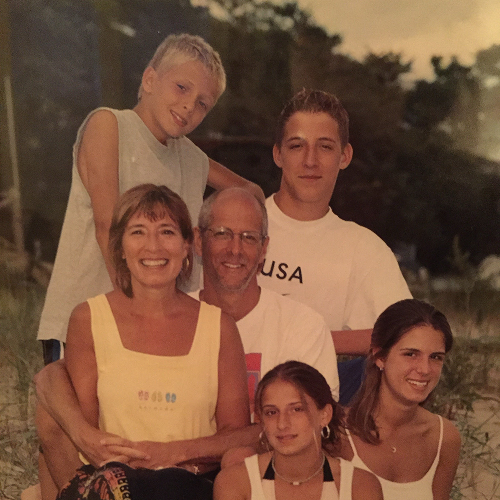Nora Disis, MD, talks about the progress the CVI has made — and the promise of a cancer-free future.
Making a revolutionary treatment available to everyone
Czepiga finished her chemotherapy, as required by the CVI trial, and took the first of many trips from Connecticut to Seattle to get a vaccine.
“I was so excited to be in Seattle. I was full of hope that the vaccine would work for me,” she says.
The vaccine did work. While Czepiga still needs regular scans and treatments, she’s healthy and thriving 20 years after joining that CVI clinical trial. And she’s far from the only person to benefit from cancer vaccines.
“When I go in for treatment and tell people I’m alive and healthy 20 years after a Stage IV diagnosis, I’m a unicorn,” she says. “But when I go back to CVI, I’m in a room full of unicorns, men and women who are 20 years out from a terminal diagnosis.”
Czepiga has lived life to the fullest over those 20 years. She exercises every day, is a devoted grandmother of two, and was there for her eldest daughter’s wedding — all of which seemed impossible when she first applied to a trial at CVI.
That’s the power, and the promise, of cancer vaccines.
“We are very encouraged by the results of our trials after following patients for 10-plus years. We can see that our vaccines are producing a strong enough immune response to kill cancer,” says Disis. “Our goal now is to partner with a company capable of taking our vaccines through Phase 3 clinical trials and ultimately submitting it for FDA approval. That’s how we make these vaccines available to more people.”
The importance of developing new cancer vaccines — and of making existing vaccines widely available — becomes clearer by the day.
Nearly 40% of Americans will be diagnosed with cancer during their lifetime. Globally, cancer deaths are expected to increase dramatically by 2050 as people live longer and access gaps grow. And, in the United States, cancer rates in people under 50 are rising, particularly rates of breast and colon cancer — two cancers for which the CVI has developed vaccines.
Philanthropy has already had a major impact on the CVI. Gifts from the Cancer Vaccine Coalition, Rivkin Center for Ovarian Cancer Research, Andy Hill Cancer Research Endowment and others have funded important steps in vaccine development, from testing new delivery methods for ovarian cancer vaccines to funding an expanded Phase II clinical trial for breast cancer vaccines. But more funding is always needed to help get vaccines to more patients, faster.
“Cancer vaccines are inexpensive to manufacture and extremely effective,” says Disis. “If we can move these vaccines through clinical trials and make them available to patients, we can have an enormous impact on health and well-being, here and around the world.”

Czepiga has lived life to the fullest over those 20 years. She exercises every day, is a devoted grandmother of two, and was there for her eldest daughter’s wedding — all of which seemed impossible when she first applied to a trial at CVI.
The future is cancer-free
Since joining the clinical trial two decades ago, Czepiga has remained an active supporter of the CVI. She previously served on the CVI Development Council and is currently a member of the patient council as well as a donor.
“I am 110% convinced that the CVI’s work is the first wave of the future of cancer treatment,” says Czepiga. “I want my daughters to have access to these vaccines.”
Due to their family history of cancer — in addition to Czepiga’s breast cancer, other family members have had ovarian, colon and liver cancer — Czepiga’s children are aggressively screened for many different types of cancer. “They’re getting all these MRIs and tumor marker tests,” she says, “and I just keep thinking, what if they could get a vaccine instead?”
Twenty years after being told she had less than two years to live, Czepiga is alive, energetic and working to make sure everyone is able to access the advances that have given her so much.
“In my lifetime, I want nothing more than to see this treatment available to everyone,” says Czepiga. “I’ll do everything in my power to make that happen.”
Written by Alex Israel



